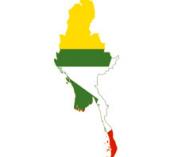
While the news that Médecins Sans Frontieres (MSF) will be allowed to continue their work in most of Burma is certainly welcome, the decision by the Burmese government to shut down MSF’s operations in Rakhine state continues a trend of denying rights to the Muslim population who lives there. The lack of medical care puts lives at risk, but the international community and media continue to focus primarily on the potential market that is Burma.
Many communities in Burma remain under siege. Ethnic and religious minorities continue to live in fear and are suffering the consequences of forced displacement. The government of Burma, in an apparent pique over MSF disclosing that it had treated 22 patients who had suffered “violence-related injuries” in an area where the government claimed only one police officer had died, made the short-sighted and ill-advised decision to shut down MSF’s operations.
The government has an obligation to ensure the right to health for all of its people. If it is unable to do so – whether because it lacks the resources or because of conflict – it must seek international assistance to meet that obligation. MSF has a long history of working in Burma and has focused on serving populations within the country that otherwise would not be able to access health care. This includes approximately 30,000 people living with HIV/AIDS, several thousand living with TB, and members of marginalized groups such as the Rohingya.
The full article continues at http://physiciansforhumanrights.org/blog/health-crisis-in-rakhine-state.html on Physicians for Human Rights’ website.

